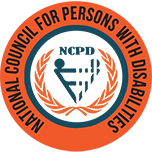
The development of services for persons with disabilities in Fiji began in the mid-sixties through the efforts of pioneering organizations that were providing some services then, namely, the Fiji Crippled Children Society, the Society for the Blind and the Fiji Red Cross Society.
Momentum began to build up into the seventies and the need to diversify into Vocational training programmes became apparent, as was the need to train teachers to meet the educational need for the Fiji's children with disabilities. This was organized through the Ministry of Education.
However, the services and the established vocational training programs were reviewed in the late eighties and found to be inadequate because they favoured those in the bigger urban centers but were inaccessible for the rural disabled population. The need to identify ways and areas of improving these services was inevitable.
The declaration by the United Nations General Assembly in the year 1981, as the 'International Year for the Disabled Persons' greatly assisted the attempts to reorganize Disability Development for Fiji, more so with the focus on the establishment of a central authority with powers under the legislation to spearhead this development.
The responsibility to organize and implement the much needed change fell on the lap of the Department of Social Welfare. Through the guidance of the Department, a sub-committee was appointed, comprising government non-government organisations and people with disabilities themselves in 1989. It recommended the establishment of a Central Authority to look after the need for people with disablities and disability development in the Country.
Through the Ministry of Women, Culture and Social Welfare, Cabinet in September 1992, approved the establishment of the Fiji National Council for Disabled Persons (FNCDP) as the central authority and the National co-ordinating body for disability development in Fiji.
For the establishment of the National Co-ordination mechanism, meetings held in Manila in April 1992 and Beijing in October 1992, merely reinforced the development that was already taking place. The 'Beijing Proclamation' therefore became the framework and the springboard Fiji needed to carry out its commitment to disability development, in a planned and comprehensive manner. It therefore became a signatory of the proclamation in 1992.
The consolidation of the establishment of the Council through its legal framework saw the enactment of the Fiji National Council for Disabled Persons (FNCDP) Act no. 21 in December 1994.
Since then, the Country has developed its infrastructure and has been a willing co-sponsor of the above instrument by using the Action Plan of the Agenda as its guiding document specially in regards to the stipulated policy categories listed hereunder: